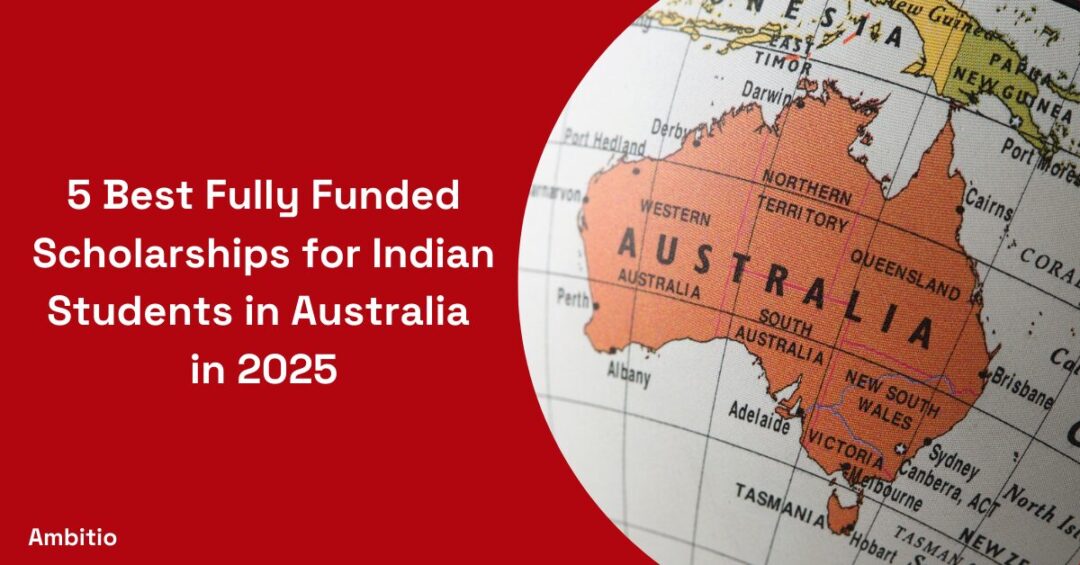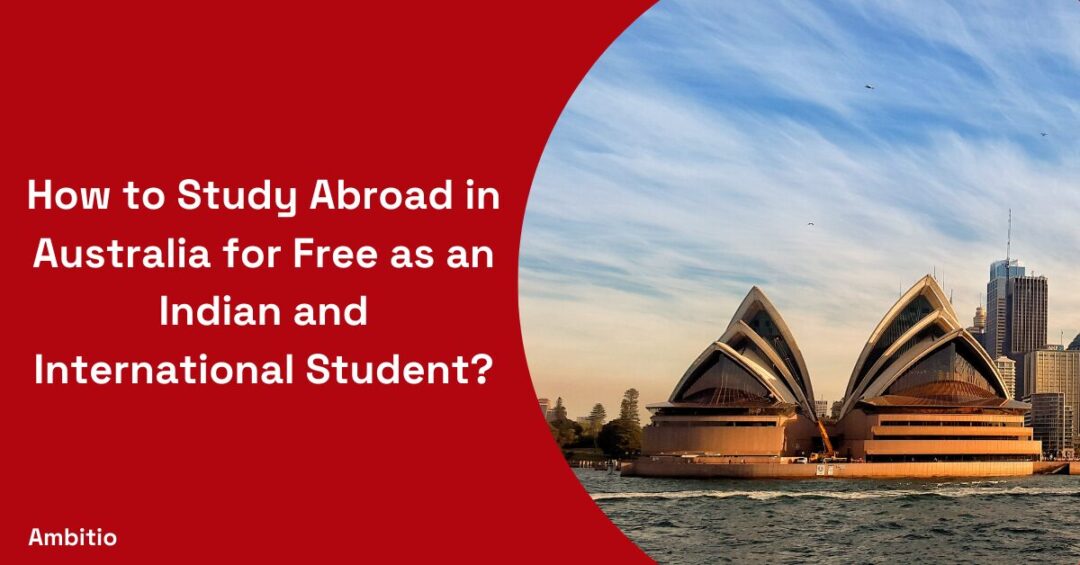16 December 2024
7 minutes read
Navigating Australia University Intakes in 2023: A Guide for International Students

Studying in Australia is a dream for many international students, and understanding the university intake system is a crucial first step. Australia is home to some of the world’s top universities, and it attracts students from different parts of the globe.
To help you plan your academic journey effectively, we’ll delve into Australia’s university intakes, application deadlines, top universities, scholarships, part-time work opportunities, English language proficiency requirements, and much more. This comprehensive guide aims to provide you with all the information you need to embark on your academic adventure in Australia.
Understanding Australia’s University Intakes
Australia offers two major intakes per year: the February intake and the July intake. These intakes are designed to accommodate the diverse needs and preferences of international students. Let’s explore these intakes in more detail:
February Intake
The February intake is the primary intake in Australia, attracting a significant number of students. It marks the beginning of the academic year in most Australian universities. If you’re looking to start your studies at the beginning of the year, this is the intake to choose.
July Intake
The July intake is the secondary intake and is equally popular among international students. It provides an opportunity for those who missed the February intake to begin their studies in the middle of the year.
Application Deadlines
Each university in Australia may have its specific deadline for both intakes. It’s essential to check the application deadlines for the universities and courses you are interested in.
Typically, the application deadlines for the February intake fall between August and November of the previous year, while the deadlines for the July intake are usually between March and May of the same year.
Top Universities in Australia
Australia boasts a plethora of world-class universities that offer a wide range of courses. Here are some of the top Australian universities known for their academic excellence and international student-friendly programs:
1. University of Sydney
Renowned for its research and innovation, the University of Sydney is a popular choice among international students. It offers a wide range of programs and is known for its vibrant campus life.
2. University of Melbourne
Consistently ranked as one of the top universities globally, the University of Melbourne offers a diverse array of programs. It has a strong focus on research and offers numerous resources for international students.
3. University of New South Wales (UNSW)
UNSW is known for its strong commitment to research and offers various scholarships for international students. Located in Sydney, it provides a dynamic learning environment.
4. University of Queensland
Located in the vibrant city of Brisbane, the University of Queensland is known for its exceptional teaching quality. It offers a wide range of undergraduate and postgraduate programs.
5. Australian National University (ANU)
ANU is recognized for its rigorous academic programs and vibrant campus life. It’s located in the capital city, Canberra, offering a unique academic experience.
Scholarships for International Students
Many Australian universities offer scholarships for international students, making it more affordable to pursue higher education in Australia. Scholarships can be based on academic merit, specific fields of study, or even country of origin. Here are some popular scholarships available for international students:
1. Australia Awards Scholarships
These scholarships are offered by the Australian government and aim to promote knowledge, education links, and enduring ties between Australia and its neighbors. They are available for undergraduate and postgraduate students from eligible countries.
2. Endeavour Scholarships and Fellowships
The Endeavour Scholarships and Fellowships program provides opportunities for international students to undertake study, research, or professional development in Australia. It covers various fields and levels of study.
3. University-specific Scholarships
Most Australian universities offer their own scholarships to attract and support international students. These scholarships may be based on academic achievements, leadership skills, or financial need.
4. Research Scholarships
If you’re pursuing a research-based program, consider applying for research scholarships. Many universities and research institutions in Australia offer scholarships to support international research students.
Part-Time Work Opportunities
One of the advantages of studying in Australia is the opportunity to work part-time while pursuing your degree. International students are usually allowed to work up to 20 hours per week during the academic year and full-time during semester breaks. Here are some things to keep in mind:
Work Conditions
When working in Australia, you must ensure that your visa allows you to work and that you comply with the work conditions set by the Australian government. Be sure to check your visa conditions and restrictions.
Types of Jobs
International students often find part-time work in areas such as retail, hospitality, tutoring, and research assistance. Universities also provide on-campus job opportunities, which can be convenient for students.
Income Tax
You may be required to pay income tax on the money you earn in Australia. It’s essential to understand your tax obligations and seek advice if needed.
Work Visa Options After Graduation
After completing your studies in Australia, you may be eligible for a post-study work visa, which allows you to gain valuable work experience in the country. The duration of this visa depends on your level of study:
Temporary Graduate Visa (Subclass 485)
This visa is available to international students who have completed their studies in Australia. It has two streams: the Graduate Work stream and the Post-Study Work stream. The Post-Study Work stream is particularly popular, as it allows graduates to work in Australia for up to four years, depending on their level of qualification.
Employer-Sponsored Visas
If you secure a job in Australia, your employer may sponsor you for a work visa. Employer-sponsored visas can lead to permanent residency in Australia.
Skilled Migration
Australia has a skilled migration program that allows individuals with specific skills and qualifications to apply for permanent residency. Graduates with skills in high demand may choose this path.
English Language Proficiency Requirements
Most Australian universities require international students to demonstrate their English language proficiency through tests like IELTS (International English Language Testing System) or TOEFL (Test of English as a Foreign Language). The required scores may vary from one institution to another and may also depend on the course you’re applying for. Here’s what you need to know:
English Language Tests
IELTS and TOEFL are the most commonly accepted English language proficiency tests in Australia. Some universities may also accept other tests like PTE (Pearson Test of English) or Cambridge English exams.
Minimum Score Requirements
The minimum score required for admission varies depending on the university and course. Typically, undergraduate programs require a lower score than postgraduate programs. It’s crucial to check the specific requirements of the institution you’re applying to.
English Language Preparation Programs
If you don’t meet the required English language proficiency scores, don’t worry. Many Australian universities offer English language preparation programs to help you improve your language skills before starting your academic program.
Cost of Studying in Australia
The cost of studying in Australia varies depending on several factors, including the university, course, and location. On average, you can expect to pay between AUD 20,000 to AUD 40,000 per year for tuition fees. Here’s a breakdown of the main expenses you should consider:
Tuition Fees
Tuition fees are the most significant expense for international students. The fees vary based on the level of study (undergraduate or postgraduate) and the field of study. Some courses, such as medicine or engineering, may have higher tuition fees.
Living Costs
Australia is known for its high living standards, and living costs can vary significantly depending on the city or region where you choose to study. Sydney and Melbourne are generally more expensive than other cities.
Health Insurance
International students in Australia are required to have health insurance. You can either purchase Overseas Student Health Cover (OSHC) through your university or choose an approved provider. OSHC helps cover medical expenses during your stay in Australia.
Additional Expenses
Don’t forget to budget for additional expenses such as textbooks, transportation, and personal expenses. These costs can add up, so it’s essential to plan your budget carefully.
Accommodation Options
Finding suitable accommodation is an important part of planning your study abroad journey in Australia. There are several accommodation options available to international students:
On-Campus Accommodation
Many Australian universities offer on-campus accommodation options for international students. This can be a convenient and social way to live while studying.
Off-Campus Housing
Off-campus housing options include renting apartments, shared houses, or homestays. These options provide more independence but may require additional responsibilities such as cooking and cleaning.
Homestays
Homestays involve living with a local Australian family. It can be a great way to immerse yourself in Australian culture and practice your English language skills.
Student Housing Providers
Some companies specialize in providing accommodation for international students. They offer purpose-built student apartments with various amenities.
Student Support Services
Australian universities prioritize the well-being and success of their international students. They offer a range of support services to help you adapt to life in Australia and excel in your studies:
Orientation Programs
Most universities have orientation programs to help new international students settle into their new environment. These programs provide information on academic expectations, campus facilities, and local services.
Academic Support
Academic support services are available to assist students with their studies. This includes academic advising, writing centers, and tutoring services.
Health and Counseling Services
Universities have health centers and counseling services to support students’ physical and mental well-being. They can provide medical care, counseling, and referrals to specialists if needed.
Career Services
Career services can help students with resume writing, interview preparation, and job placement. They can also provide information on internships and work opportunities.
Cultural and Social Activities
To help international students connect and engage with their peers, universities organize cultural and social activities. These events can be a great way to make friends and explore Australian culture.
Conclusion
Studying in Australia is an exciting and rewarding experience, but it requires careful planning and preparation. By understanding the university intake system, application deadlines, available scholarships, part-time work opportunities, English language proficiency requirements, and other essential details, you can make the most of your academic journey in Australia.
Whether you choose to start your studies in the February intake or the July intake, Australia offers a world-class education and a vibrant multicultural environment.
Be sure to research specific deadlines, explore scholarship options, and prepare for an enriching educational experience in the land down under. With the right information and resources, you’ll be well-equipped to achieve your academic and career goals in Australia.
FAQs (Frequently Asked Questions)
Q1: Can I apply for both the February and July intakes in Australia?
Yes, you can apply for both intakes, but it’s crucial to ensure you meet the specific application deadlines for each.
Q2: Are there any scholarships available for international students in Australia?
Yes, many Australian universities offer scholarships for international students. Be sure to research and apply for relevant scholarships.
Q3: Can I work part-time while studying in Australia?
Yes, international students in Australia are usually allowed to work part-time during their studies. The specific regulations may vary, so check with your university for details.
Q4: How much does it cost to study in Australia?
The cost of studying in Australia varies depending on the university, course, and location. On average, you can expect to pay between AUD 20,000 to AUD 40,000 per year for tuition fees.
Q5: Are there any English language proficiency requirements for admission to Australian universities?
Yes, most Australian universities require international students to demonstrate their English language proficiency through tests like IELTS or TOEFL.

You can study at top universities worldwide!
Get expert tips and tricks to get into top universities with a free expert session.
Book Your Free 30-Minute Session Now! Book a call now




























